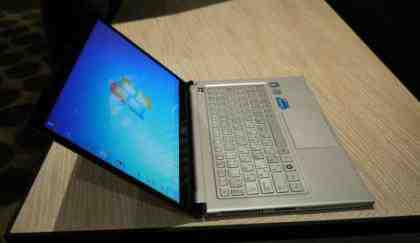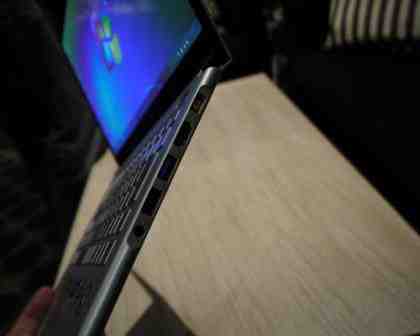NEC LaVie Z ultrabook - how light is too light?
We don't usually feature products that aren't available to buy in the Uk here on Expert Reviews, but we thought this one was worth sharing. At a recent Intel Ultrabook event, we got to spend some time with NEC's LaVie Z ultrabook - it's currently the world's lightest at 875 grams, and is only available in Japan.
What struck us is just how light that 875g feels in the hand - the 13in laptop weighs less than some digital SLR cameras, and spread across a wider surface area it barely feels like you're holding a laptop. It might be ideal for working on the move, but compared to other Ultrabooks it seems to be lacking something.

That's not to say the LaVie Z is flimsy - it's sturdy enough, mainly thanks to the aluminium/magnesium construction, with room for two USB ports, an SD card reader and full-size HDMI port, but it's dangerously close to feeling cheap simply because it doesn't weigh enough .

There's a fine balance between feeling too heavy and feeling too light - customers feel they aren't getting their money's worth if an expensive product doesn't feel weighty in their hands, a fact which is particularly true when talking about technology. Ultrabook manufacturers are racing to be the thinnest and lightest, but we wonder if there's a limit where customers simply won't feel they are getting value for money.
We don't know how well the LaVie Z is doing in Japan, but we think it might have crossed the line into underweight territory.
